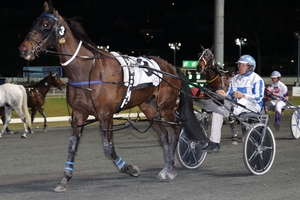Some horse racing trainers are moving quickly to accommodate the horse welfare lifeline the industry has been granted.
And that could have the bonus of having racing ready to resume in New Zealand not long after the country returns to Covid-19 alert level 3.
Horse and dog racing has been stopped since Monday and can obviously not continue at Level 4 so like most other industries is in limbo.
But the three race codes have worked with the Ministry of Primary Industries to ensure stables, farms and training tracks can stay working, with strict protocols, to ensure animal welfare.
That will mean trainers and stud farms with more than five staff members or those that can not achieve social distancing need to register with the MPI so they can continue to work.
They will able to do so under strict protocols, including no non-working visitors, but it will mean horses and dogs can be fed, exercised, undergo veterinary work and their stables and kennels kept clean.
Some high-profile trainers have already decided they would rather shut their businesses down for a variety of reasons from health concerns, staffing levels, economics or their own personal opinions on how Covid-19 restrictions should be handled.
They have sent horses on non-working holidays (known in racing as giving a horse a spell) and that has resulted in many of the farms where horses take these breaks being inundated.
Other trainers have reduced staff numbers but will keep up to 20-25 horses in work so they can be looked after but also kept at least at a moderate level of fitness so when racing returns, which would likely be at Level 3, there are at least some horses to race.
Obviously nobody can know when that will be and those horses in work are costing their owners money without the promise of any returns for weeks or even months. That is the risk some owners are willing to take, others are not.
But while animal welfare is vitally important, the long-term economic life of racing is also.
Racing industry bosses, with help from trainers who choose to be involved, must have horses in each region fit enough to race the day after the country returns to a Level 3 alert, if that is allowed by Government.
Every day that racing is allowed to return but there is no racing in this country because that horse or dog supply chain has been cut will be a further economic body blow.
That means readiness from code bosses, clubs and the TAB to ensure racing can start when restrictions are lifted. Starting a month or six weeks later after that would be disastrous.
That could become even more important as because New Zealand looks to be ahead of the curve of many other countries in its response to Covid-19 and it is hoped, or should that be prayed for, we weather the horrors of the approaching storm more quickly.
If that is the case and racing can return then it could be one of the first jurisdictions in the world with racing on and it could be beamed worldwide to bring in valuable income to an industry which, like so many others, faces being on its knees.
Everybody has more important things to think about now and those in the racing industry know that.
But the industry not being prepared to start up again the very first day it is allowed to is wasting that potential opportunity.
One facility which was closed on Tuesday was the Franklin Park training centre at Pukekohe, home to around 200 harness horses at its peak and it is hoped it may soon be open for training with strict protocols.
Michael Guerin

 USA
USA Canada
Canada Australia
Australia New Zealand
New Zealand Europe
Europe UK / IRE
UK / IRE


